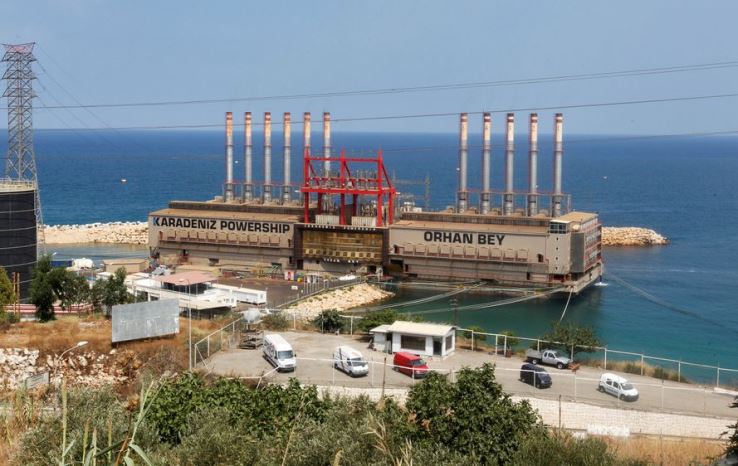Turkish energy company Karpowership says it’s reviewing the details of the decision by the Environmental Affairs Department that rejected an application by the company to generate electricity at three of the country’s ports.
The company says it remains committed to its projects in South Africa and it’s eager to get to work.
The company was supposed to provide power to South Africa’s national electricity grid under the Risk Mitigation Independent Power Producers Procurement Programme.
Karpowership says it will in the next 20 days assess the details and appeal the decision.
The Turkish company was expected to dock three ships at the Ports of Coega, Saldanha and Richards Bay and to provide electricity to mitigate shortages.
The company says it disagrees with the decision by the Department and believes it has met all necessary requirements.
It says it commissioned expert studies and the information it got shows noise levels of the project were of low significance.
Kay Sexwale is the spokesperson for Karpowership SA,” The ships are engineered to have minimal impact on their surroundings and they operate successfully in eleven countries. We believe that we fall within the legal limits of South African laws on all fronts, as for the noise underwater study, the protocol for speaks of available information. We must stress that there are no existing power ships docked in any of SA’s harbours and no such technology exists in the Republic.”
Karpowership has two units operating in Ghana.
The company signed a contract with the Electricity Company of Ghana in 2014, to deploy a power ship for a period of 10 years.
According to Ghanaian investigative journalist Emmanuel Dogbevi of Ghana Business News, things did not always go smoothly with the power ships in the West African country.
He says the ships were contracted at a time when the country was suffering serious electricity shortages with outages almost every day. This had a serious negative impact on businesses and the economy as a whole.
He says this created pressure for the government to solve the problem. There have however been questions raised about the legality of the agreement.
The country also continues to suffer power outages.
Dogbevi says, “There are a lot of questions being raised about the agreement, that it hasn’t passed through parliament and so forth, to the extent that someone actually, a member of parliament did take the matter to the supreme court asking the supreme court to cancel the contract and the supreme court threw out the case. They did not give any explanation, they just threw it out, and this member of parliament went to court because his argument was that the agreement did not pass through parliament and therefore it’s illegal.”
The fishing community of Tema where the ships were first docked, were concerned about the impact the ships would have on the environment and on their livelihood, but they were assured that the technology used was safe.
Dogbevi explains, ” Fishermen, the local chief, the people questioned how safe it is for the ship to be docked in their community. They started raising concerns about how that would affect their fishing activities and so forth, and indeed the argument the fishermen were making was that this is a ship that is putting out smoke as it operates, isn’t the smoke going to pollute the environment and cause health problems? They raised concerns and the management of the Turkish company, local government officials, reassured them that the ship was not going to affect them.”
Meanwhile, here at home, business continues to sweat the possibilities of an even longer period of electricity insecurity.
The Intensive Energy Users group is worried that the failure to improve the security of supply of electricity will continue to impact business negatively.
CEO of Energy Intensive Users Group Fanele Mondi, ” These risk mitigation projects were really intended in closing the gap, our short term energy gap which is currently estimated as somewhere around 5000 megawatts. Therefore it means the system will still have this shortage, this particular trench of projects were supposed to deliver about 2000 megawatts. 2000 megawatts on its own, it really means that you can therefore save theoretically the stage 2 load shedding, therefore if any of these projects are failing or are not able to deliver at the required time, our load shedding may continue for quite a while.”
Energy expert Ted Blom shares the same sentiment.
“The denial of the permits to Karpowership is of disastrous consequences for the country. As we know this bidding process has been ongoing for more than two years and the fact that it has now been stopped in its tracks means that the Department has to go out on fresh tender and I am not sure that new tenderers would want to come to the party given the allegations of corruption in the current tender. So that leaves South Africa high and dry.”
Karpowership has 20 days to appeal against the decision by the Department of Forestry, Fisheries and the Environment.


